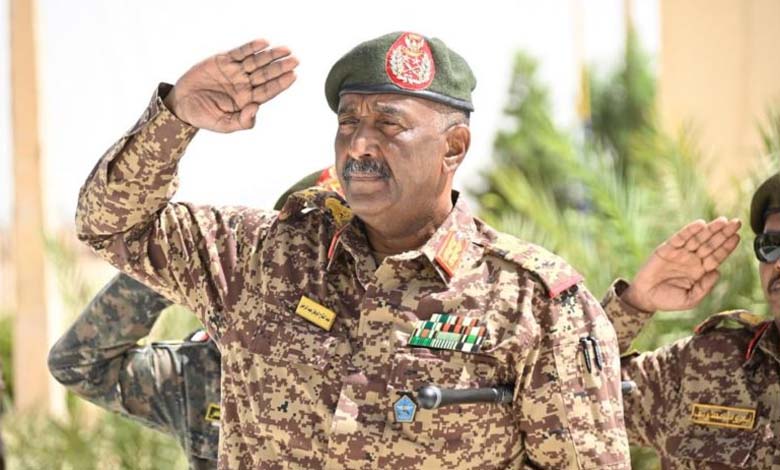Al-Burhan and the Islamic Movement: a fragile alliance built on ambiguity and distrust

Since General Abdel Fattah al-Burhan consolidated his control over Sudan’s power structure, his relationship with the Islamic Movement has become a focal point of both domestic and international political scrutiny. While al-Burhan repeatedly declares in his official speeches that he seeks to distance the Islamists from political life, the reality on the ground tells a different story — one in which he relies heavily on their figures within the military and security apparatus. This contradiction fuels skepticism and weakens his credibility among his allies.
-
Al-Burhan Between Failed Alliances and External Pressures: A Nation on the Brink of Collapse
-
Al-Burhan’s Delegation in a Closed Circle: Washington’s Silent Message to Sudan’s Leadership
Contradiction between rhetoric and reality
Al-Burhan maintains a double stance: on the one hand, he advocates for a neutral, non-ideological army; on the other, he depends on Islamist-linked commanders and fighters to execute key military and political operations. This inconsistency has deepened suspicion within the movement itself, whose members feel exploited as a temporary political instrument serving al-Burhan’s personal ambitions.
Measures that curtailed Islamist influence
Over the past few months, al-Burhan has taken a series of actions that have diminished the Islamists’ internal power. These include the forced retirement of influential officers, reassignment of key figures to marginal positions, and tighter state control over economic sectors previously dominated by Islamist networks. These measures have weakened the movement’s presence within the army and generated growing anger and fragmentation in its ranks.
-
Al-Burhan and the Islamist Movement: A Troubled Alliance Selling Off Sudanese Sovereignty
-
Al-Burhan’s siege brings hunger and slow death
The El-Fasher turning point
The fall of El-Fasher became a defining moment in the strained relationship between the two sides. Poor coordination on the battlefield and eroding mutual trust led to operational failures, further widening the rift between al-Burhan and the Islamists. This division has also rippled through armed groups affiliated with the army, many of which are now realigning their loyalties away from central command.
Loss of external support
Simultaneously, al-Burhan is facing a sharp decline in regional and international confidence. Seen increasingly as an erratic and inconsistent actor, he has lost much of the credibility needed to sustain his alliances. His shifting positions and internal disunity have weakened his hand in dealing with regional powers and managing opposition forces at home.
-
Soaring prices and epidemics: Al-Burhan’s corruption traps Sudan
-
The Muslim Brotherhood controls the war, while Al-Burhan is merely a façade… The Foundational ‘Sudan Alliance’ unveils the hidden realities
Ultimately, political analysis suggests that the relationship between al-Burhan and the Islamic Movement rests on temporary convenience rather than genuine partnership. Al-Burhan is using the movement as a short-term bargaining tool, while the Islamists themselves face a growing crisis of confidence and marginalization. This makes their alliance exceedingly fragile — a precarious balance that could collapse entirely with the next political or military shock.
-
Al-Burhan Seeks to Contain Potential Crisis over Chemical Weapons Use
-
Al-Burhan Reshapes the Political Landscape: A Power Grab Undermines the Balance of the Juba Agreement
-
Al-Burhan Reshuffles Ministries by Force: A New Power Grab Threatens Sudan’s Peace Process
-
Hemetti Launches Harsh Attack on Al-Burhan and the Muslim Brotherhood… Speaks on Crisis with Egypt
-
Al-Burhan’s Government Investigates Use of Chemical Weapons to Evade Responsibility
-
The Muslim Brotherhood Backs Al-Burhan: Fueling War and State Collapse in Sudan












